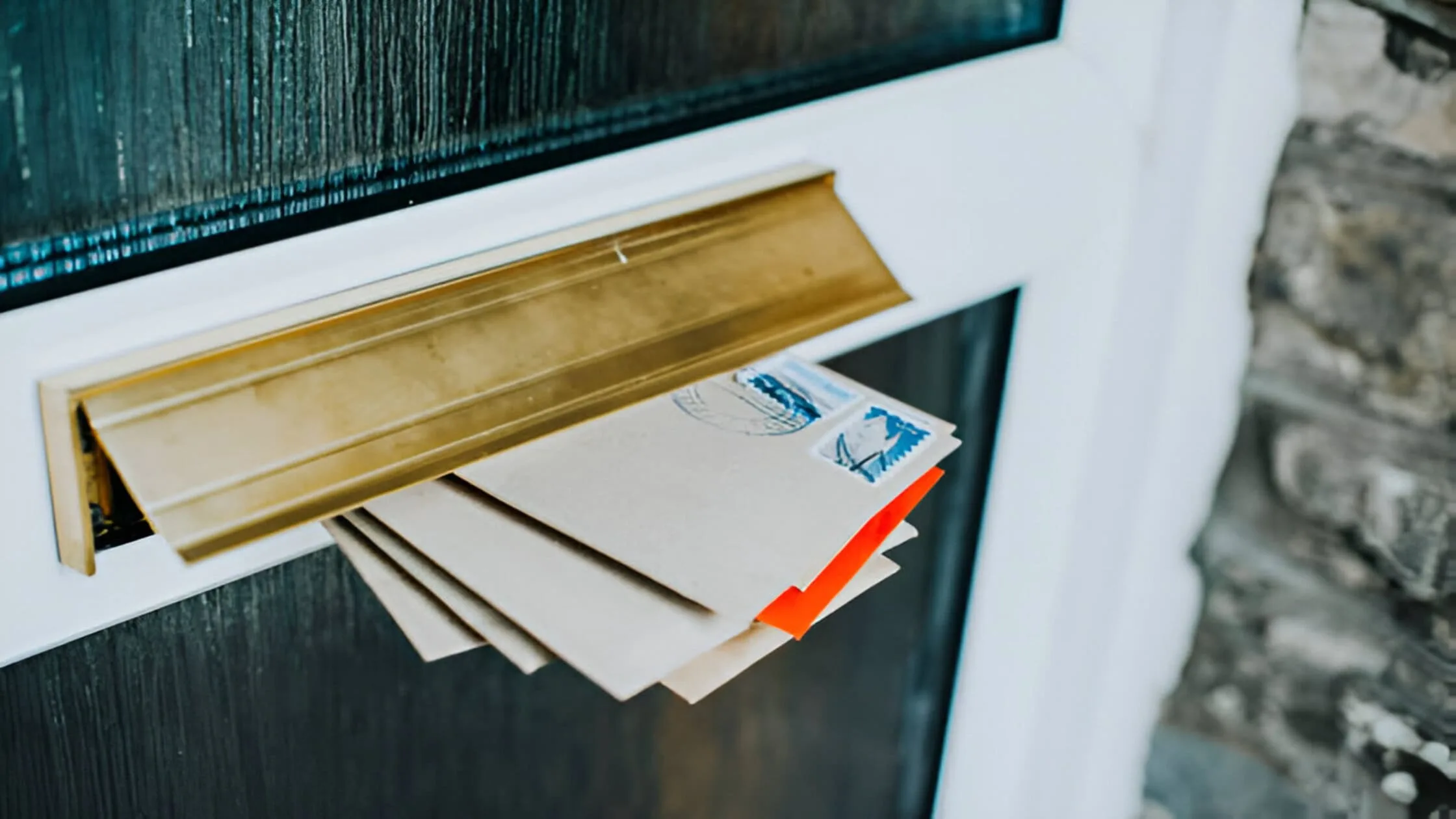What to do with mail from the previous tenant is a key challenge for landlords. If you’re receiving mail for a previous tenant, like letters or packages, mark each as “Return to Sender,” alert the post office, and never open any previous tenant's mail. Contact senders directly if the mail keeps arriving.
Properly managing mail from past residents not only prevents legal issues and protects everyone's privacy but also makes property management smoother. Read on to discover why careful mail handling is vital for landlords and how to handle each situation step by step.

Quick Facts Table: Handling Mail From Previous Tenant
Why Landlords Need to Handle Former Tenant Mail Carefully?

Managing previous tenant mail is more than just good housekeeping. As property managers, landlords hold a responsibility to protect the rights and privacy of all tenants, current or former.
Protecting Tenant Privacy and Personal Information
When a landlord receives mail from a previous tenant, often that mail contains sensitive data such as bank statements, medical information, or official notices. Failing to handle these letters with care risks compromising private information. This violation can open landlords to lawsuits or criminal charges for mail tampering.
Handling what to do with mail from the previous tenant properly means maintaining confidentiality by not opening mail and ensuring mail redirection or return as soon as possible.
Avoiding Liability and Legal Consequences
Landlords who mishandle former tenant mail may face serious legal consequences under federal law and state statutes. For example, intentionally disposing of mail not addressed to oneself or not returning mail to the sender can constitute mail theft or mail tampering, offences punishable by fines or imprisonment.
State-specific laws intensify these risks. For instance, in California, mail theft is a misdemeanour, while Texas enforces strict penalties under Penal Code §31.20. By following prescribed steps when encountering previous tenant mail, landlords can avoid inadvertent legal violations.
Enhancing the Landlord’s Reputation
A landlord’s reputation depends heavily on professional conduct and respect for tenant privacy. Responding responsibly to receiving mail for the previous tenant can build trust with current tenants. Demonstrating concern for former residents’ confidential mail also speaks to an owner’s fairness and diligence.
At LeaseRunner, offering transparent communication and well-outlined policies for handling tenant mail helps landlords maintain strong reputations and tenant satisfaction. This reputation can be valuable when attracting new tenants or renewing leases.
Legal Compliance and Privacy Laws

Legal compliance is essential when dealing with mail from a previous tenant or any mail for someone who no longer lives here. Landlords must know and respect these to avoid serious trouble.
Avoiding Liability and Legal Consequences
Many landlords wrongly believe that throwing away mail from old tenants is harmless. But federal law states otherwise. The United States Postal Service (USPS) enforces strict rules about who can handle, forward, or dispose of mail for another person. Only the addressee, a court-appointed representative, or an authorized agent can legally handle, open, or discard mail.
Discarding, opening, or tampering with mail not addressed to you can be considered mail theft or mail tampering. These offences carry penalties, including fines and even jail time.
For example, if you throw out a court summons, medical bill, or government check meant for a former tenant, you risk legal action from the ex-tenant, the sender, or even the USPS. Instead, always mark such mail as “Return to Sender – Not at This Address” and give it back to the postal service. This simple step protects you and your property from future claims.
Protecting Tenant Rights
Tenants, whether current or former, have privacy rights confirmed by federal and state laws. A common misconception is that a tenant and an occupant are the same, but there are key legal differences between the two. Handling mail from old tenants carefully is more than routine; it’s respecting civil rights.
Opening, withholding, or copying tenant mail, especially when it contains personal or sensitive data, may lead to privacy violations. Landlords should create clear protocols for how to handle former residents’ mail. Training staff on these helps prevent missteps.
At LeaseRunner, we offer lease agreement templates that clearly outline mail privacy standards. This transparency educates all parties and reduces confusion.
Maintaining Good Landlord Reputation
Failing to manage mail for a previous tenant damages your landlord's reputation fast. New tenants often judge a landlord’s professionalism by the state of their mailbox. Imagine moving into a new home and finding old mail from previous tenants still piling up.
Showing genuine respect for mail privacy builds trust with current tenants. It also prevents disputes that could escalate. Keeping a clean mailbox space demonstrates care and fairness. These actions increase tenant satisfaction and can boost property value by attracting quality renters.
Practical advice includes keeping a log of returned mail, holding mail for short, state-compliant periods if requested, and communicating your policies clearly to tenants. At LeaseRunner, we help landlords build reputations for fairness by promoting best practices and open communication. These steps can differentiate you in a competitive rental market and keep you out of legal trouble.
Is It Okay to Throw Away Old Tenants’ Mail?
The short answer is no. Even mail that looks like “junk” should not be thrown away without care and tossing any mail for a previous resident can lead to legal trouble. It;’s because these actions may be seen as mail theft or willful destruction. For example, a new tenant might bring a pile of unneeded catalogues to the office. Or you may feel tired of seeing four months of unpaid bills for a former occupant.
Landlords must remember: even mail clearly addressed to someone else should never be discarded casually.
The safest action is to mark such mail “Return to Sender – Not at This Address.” Then give it back to the USPS. This way, the post office knows the recipient no longer lives there. The sender will be notified to update their records.
In difficult cases, where persistent mail from the previous tenant continues arriving, make multiple efforts. Contact the local postal service and notify frequent senders directly. Keep records of all these attempts.
If the problem still persists, consult legal counsel or your local postal inspector. Remember, only the addressee or their authorised agent, not landlords, can officially redirect or dispose of personal mail under federal law. Following these simple tips helps landlords handle getting old residents' mail correctly. It protects privacy and avoids problems.
What To Do With Mail From the Previous Tenant?

Landlords often face the issue of mail from the previous tenant arriving long after the tenant has moved out. Handling this mail correctly is crucial to avoid legal trouble and maintain professionalism. Below is a clear action plan for landlords on what to do with mail from previous tenant properly that you should take a quick look at:
Mark Mail “Return to Sender”
As soon as you find mail from a previous tenant, write “Return to Sender – No Longer at This Address” clearly on the envelope or package. Then place it in your outgoing mailbox for the postal carrier. This simple step informs both the sender and the post office that the intended recipient is no longer at this address. Over time, this reduces the volume of dealing with old tenants' mail you get.
For example, if you manage an apartment complex, provide written instructions to staff and tenants about marking and returning old mail. This is especially important for units with frequent turnover.
Notify the Previous Tenant
If you still have the former tenant’s phone number or email, contact them politely. Let them know their mail is still coming to your property. Encourage them to file a USPS change-of-address form and update their contact details with banks, utility companies, and other frequent senders.
It is the tenant's responsibility to complete this form with the post office, which ensures all their mail and packages are forwarded from the old address to their new one.
Including reminders in your move-out communication templates can help make this process smoother for everyone. For instance: “Hi John, you still have some mail arriving here. Please update your address with the post office and your service providers to avoid missed bills or packages.”
Do Not Open the Mail
No matter how tempting, do not open the previous tenant's mail. It’s illegal and violates tenant privacy. Even if you think the mail is harmless or unimportant, it must remain sealed and handled according to USPS rules.
Posting visible reminders in your rental office can help staff remember this rule. For example, if a tenant returns a paycheck envelope, it should only be marked and returned, never opened or forwarded without permission.
Hold Mail Temporarily If Requested
Some former tenants may ask you to hold mail for a short period after move-out. This request should be in writing. Secure any held mail and hold it only as long as local laws allow, usually 7 to 14 days.
Document all such requests carefully to avoid disputes. Once the hold period ends, transfer the mail to the tenant or return it to the postal service. Adding this policy to your rental office procedures and how to get out of a lease early cheat sheet helps maintain consistency.
Clear Mail After Efforts to Contact Tenant
If marking mail as “Return to Sender” and contacting the former tenant fails to stop the influx, consult your local Postmaster. Notify USPS of persistent mail issues and keep detailed records of all your actions. Never discard mail yourself until you have exhausted all legal options. Documentation of your efforts (dates, letters, and calls) protects you if complaints arise.
Avoid Giving Mail to Current Tenants
Never hand over the getting-old residents' mail to new tenants. Even if they know the previous tenant, this violates privacy laws and can cause confusion. Instead, ask tenants to pass on any misdelivered mail back to you. Use mailbox signs like “No mail for former residents after [date]” to help the postal carrier.
Use Postal Service Resources
The USPS provides resources for landlords dealing with misdelivered mail from an old resident. Schedule a meeting with your local post office to discuss long-term solutions tailored to your property’s needs. Place clear mailbox labels listing only current residents.
Keep records of communications with USPS and postal carriers who regularly serve your property. Utilise USPS online forms and official guidance to notify them of ongoing mail delivery issues. Postal carriers have extensive experience with this problem and may offer practical tips.
How to Stop Receiving Mail From Previous Tenants Long-Term?

Landlords often get frustrated dealing with the mail for someone who no longer lives here. It can fill mailboxes and waste time. Luckily, there are lasting ways to fix the problem. These actions cut down daily hassles and stop mail from piling up.
Notify the Local Post Office
First, after several rounds of marking mail “Return to Sender,” make an official visit to your local post office. Bring your ID and proof that you manage or own the property. Give the post office a list of former tenants who no longer live there and shouldn’t get mail at your address.
This step tells USPS to update its delivery lists. It stops most mail from the previous tenant. For example, if you manage a large apartment complex, naming multiple former tenants helps postal staff avoid mistakes. Take notes during your visit and follow up if errors continue.
Place a Mailbox Note
Next, put a clear and polite sign on the mailbox. Something like “Only deliver mail addressed to current resident(s) [Name(s)].” This simple step helps both regular and substitute mail carriers deliver mail correctly. If you have many units, post a list of current residents near mailboxes. Keep it updated as tenants move in and out. This reduces mistakes and confused mail delivery.
Contact Frequent Senders Directly
Sometimes, the problem is recurring mail from certain companies, like banks, subscription services, or stores. Landlords can call or email these senders. Tell them the tenant has moved. Ask to remove your address from their mailing list. A landlord can keep a log of these “persistent senders.” Tracking who keeps sending mail helps focus follow-up efforts and greatly reduces unwanted mail.
File a Complaint with the Postal Service
If mail keeps arriving despite all efforts, file a formal complaint with USPS. Use their online forms or visit a local branch. Provide records of your “Return to Sender” labels, mailbox notes, and contacts with senders. USPS will investigate repeated delivery problems. Keeping thorough records creates a paper trail and protects you from any complaints.
State-Specific Considerations for Landlords

Handling mail for a previous tenant requires landlords to follow laws that differ by state. Knowing these rules helps prevent legal problems. Here’s an overview of how five common states treat mail issues for former tenants and what landlords should do.
1. California – Misdemeanour Mail Theft Under State Law
California is strict about mail. Its Penal Code § 530.5 calls mail theft or tampering a misdemeanour. Landlords who open, throw away, or keep mail from previous tenants may face prosecution. Punishments include fines and up to one year in jail.
For landlords, the best protection is to mark unwanted mail clearly as “Return to Sender.” Using prominent mailbox labels helps both mail carriers and tenants understand that previous residents no longer live there. Keeping thorough records of where you have redirected mail can shield you in legal cases.
If you want help with tenant communications, LeaseRunner offers templates for writing a non-renewal of lease letter. These reinforce your commitment to proper, legal handling.
2. New York – Identity Theft Concerns, Federal Law Dominates
In New York, identity theft risks make mail handling critical. The law bans landlords from opening or destroying mail to any person no longer residing at the address. The process is to treat all previous tenant mail as protected.
Landlords should mark mail for past tenants “Return to Sender” and coordinate with USPS to stop further delivery. LeaseRunner also recommends using clear tenant communication tools, such as rental application denial letter best practices, to keep all tenant correspondence compliant and professional.
3. Texas – Penal Code §31.20, Strict Penalties
Texas enforces strict penalties for mail tampering or unauthorised disposal. Even indirectly discarding mail, such as putting envelopes in recycling without proper return or notification, is a crime under Penal Code §31.20.
To comply, landlords must carefully hold and mark mail from old tenants as “Return to Sender.” Contact former tenants or USPS before any disposal action. Documentation of all contacts and attempts to return mail helps prove compliance.
4. Florida – Petty/Grand Theft Rules, Federal Applies
Florida’s theft statutes cover mail as personal property. Landlords in Florida should be cautious to log all mail handling. This includes tracking mail received for former occupants and communications with USPS or the tenants.
Keeping mail-handling policies clear and sharing them with staff supports compliance with both state and federal law. These measures protect landlords from accusations involving improperly getting old residents' mail.
5. Illinois – No State Law, Federal Enforcement
Illinois relies primarily on federal mail laws for enforcement. There is no specific state statute targeting mail theft or tampering by landlords. Nevertheless, landlords must strictly follow USPS guidelines to avoid legal trouble.
Landlords should regularly consult with the local postmaster to stay informed and aligned. Clear signs indicating permitted recipients support mail carriers and prevent mistaken deliveries. Following USPS rules protects landlords when dealing with previous tenant mail and aids in smooth transitions.
Conclusion
What to do with mail from the previous tenant is a vital task for landlords that often causes confusion. Landlords should always mark mail as “Return to Sender,” contact the post office about the former tenant, and never open or throw away mail themselves. If mail keeps coming, landlords should reach out to frequent senders or their local Postmaster.
For example, telling banks directly can stop repeated statements. LeaseRunner offers lease termination letter templates to help communicate clearly. Taking these steps helps you handle receiving mail for the previous tenant easily while protecting the tenant's privacy and your reputation. Knowing how to stop getting mail from old tenants is not just smart—it’s essential.
FAQs
Are Landlords Required to Return Misdelivered Mail?
Yes. Landlords must mark unknown mail as “Return to Sender” and return it to USPS. Keeping or destroying mail without attempting a return is illegal.
What do I do if I receive mail at my address with someone else’s name?
Do not open the mail. Mark it with “Return to Sender” or “Not at This Address.” Notify the post office or the previous resident if possible. Repeat for each piece of previous tenant mail received.
How long should I hold mail for a previous tenant?
No strict national rule, but most landlords retain such mail for 7–14 days if the ex-tenant requests a hold (always document this). Dispose only after proper return attempts and official notice. For specifics, see resources on how to make a tenant want to leave.
What if the previous tenant is deceased?
Mark the mail as “Deceased, Return to Sender.” Notify their next of kin if possible, and consult your post office for further steps.
Can I file a Change of Address form on behalf of a former tenant?
No, only the previous tenant (or their legal representative) can authorise a change of address. Never attempt to redirect mail without explicit permission.







